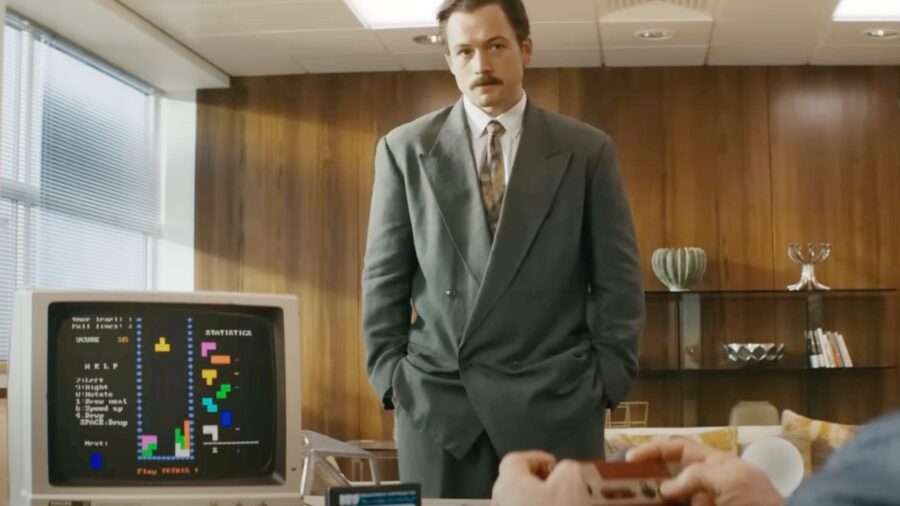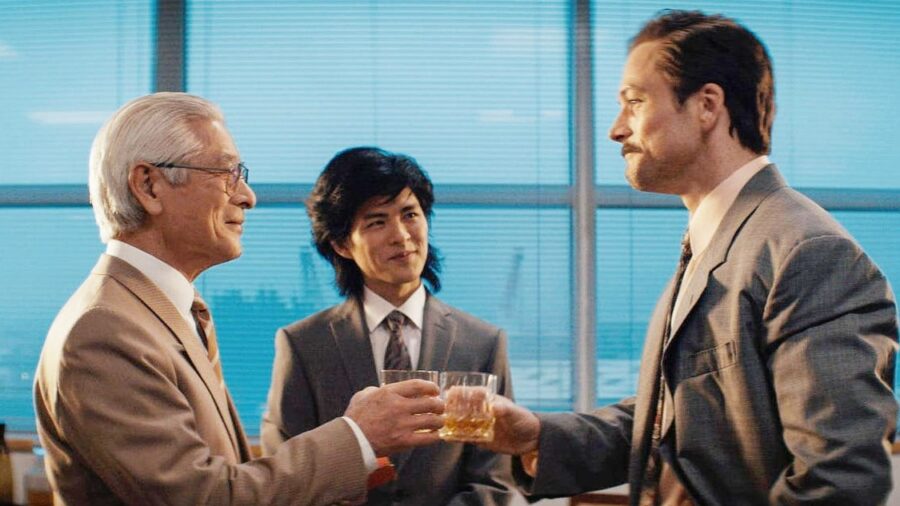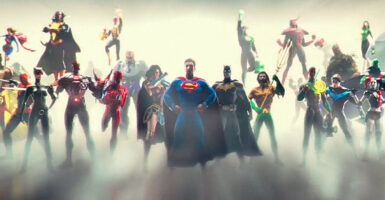Tetris Movie Review: Why Tell A True Story If You Have To Change It This Much?
Tetris tells an interesting origin story for the popular game, but doesn't trust events enough to not embellish them.


TETRIS REVIEW SCORE
Apple TV+’s new film is something of an odd duck: an origin story for a video game so ubiquitous, most people would never even question how it became so. It cannot be denied that the path that Tetris took from a Soviet computer programmer’s pet project to ridiculously popular Nintendo Game Boy accessory is a strange and fascinating one, which raises the question of why it needed to be so heavily fictionalized for the movie. While Taron Egerton is a fine enough guide through the minute details of 1980s video game contract negotiations, it is pretty telling that everyone involved in Tetris has basically said they needed to make up stuff to make it more interesting.
Tetris stars Taron Egerton as Henk Rogers, the real-life entrepreneur and video game designer who shepherded the game to the world at large. That the actual Rogers is a Dutch man of partly Indonesian descent does not seem to be a consideration the movie was interested in, though it briefly mentions his background. The Welsh actor plays him as though he was from somewhere in the American Midwest, which is, once again, telling of director Jon S. Baird’s apparent desire to tell a story that appeals to American thriller fans more than a very accurate one.

To be fair, the essential plot of Tetris is close to historical events, broadly speaking. As seen in the movie, the game was developed by Alexey Pajitnov (Nikita Efremov) while employed at ELORG, a state-owned computer import/export company. ELORG eventually licensed the rights to Robert Stein (Toby Jones), who in turn partnered with the controversial, flamboyant billionaire Robert Maxwell (Roger Allam) to distribute the game. None of those events are in dispute.
However, Tetris takes the scenario of a fairly complicated business deal and basically layers a Cold War espionage film on it. While there is no indication that the KGB was involved in the licensing of the game to Nintendo, the movie introduces a sinister Soviet politician named Valentin Trifonov (Igor Grabuzov) who periodically makes gnomic predictions of the fall of the USSR and his plans to hijack the deal to make money for himself. Trifonov appears to be a wholly fictional creation of Tetris, though oddly, a real-life Soviet figure of the same name did exist and was executed in 1938.
At times, it seems that Tetris is more interested in telling a story about the mounting chaos in the last year of the USSR than discussing the game. Unfortunately, the film does not have much to say about the Soviet Union or the actual geopolitical situation beyond “Moscow sure seems pretty gray.” It might be asking a bit much of a movie about a particularly addictive video game to have insight into one of the most major collapses of a developed nation in history, but Tetris brings it on itself by constantly bringing it up to begin with.
Tetris also has an odd tendency to portray the Soviet Union as a deeply corrupt, violent place. While the failings of the USSR are myriad and worthy of discussion, it is pretty one-sided to pearl-clutchingly reveal that the inventor of the video game received no royalties or ownership under communism when that is in fact still the situation in the very capitalist video game industry in the United States in 2023. By the time Taron Egerton is being beaten in the street by evil Soviet agents, it’s pretty clear whose side Tetris is on.
It’s even more odd that the movie goes out of its way to invent dramatic twists while barely acknowledging that Robert Maxwell (father of child sex trafficker and Jeffrey Epstein collaborator Ghislaine Maxwell) would later die in very mysterious circumstances at sea. Tetris can’t find anything noteworthy to say about an actual mysterious death, but seems to find it necessary to make up fictional dangers.
All that said, Tetris moves breezily along even as the negotiations between Taron Egerton, the Soviets, Nintendo, and Maxwell get ever more complicated. In particular, Toby Jones does a lot with a thinly-sketched character, mining the biggest laughs from a scene in which he and Kevin Maxwell (Anthony Boyle) ineffectually attempt to physically fight each other in an office. There’s clearly a reason why every franchise from Marvel to Harry Potter to The Hunger Games brings in Jones as a clean-up hitter.
Ultimately, Tetris tells an interesting story about its eponymous game, but doesn’t seem to trust that the actual events or people are worth talking about. That just raises the question of why the story was told in the first place.












